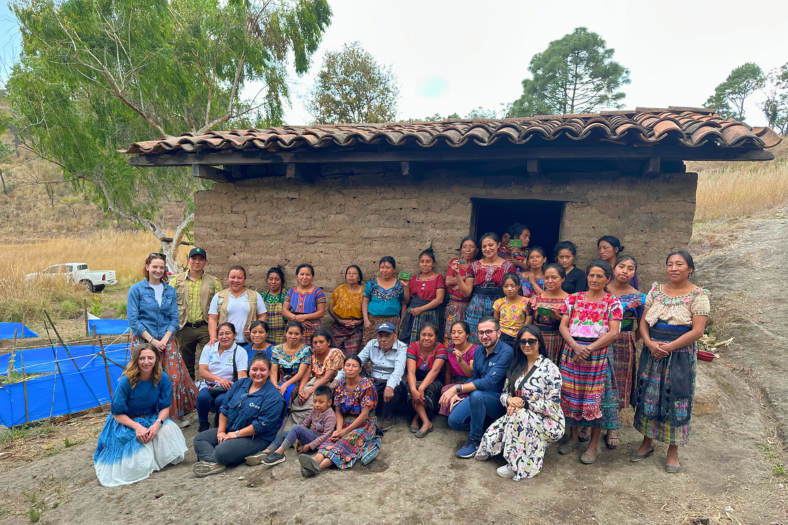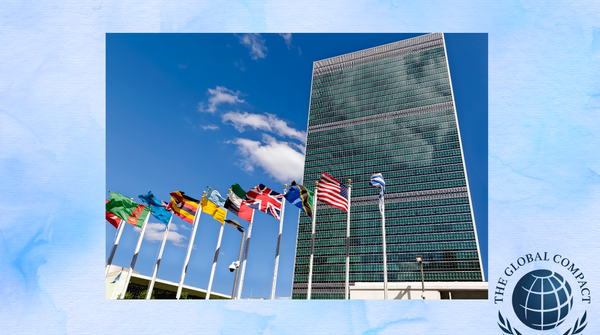Sustainable Access to Nutrition in Rural Guatemala Through Collaboration

Recently, three members of our team had the opportunity to travel to Guatemala and meet with partners and to host a knowledge-sharing event at the Canadian Embassy. We also had the privilege of visiting some of the Lucky Iron Impact program’s end communities located in mountainous regions 6 to 8 hours outside of Guatemala City in the Totonicapán region. The two communities we visited, Santa Maria Chiqimula and San Pedro Jocopilas, are significantly disconnected from nearby towns and thus access to basics such as water, groceries, pharmacies, and healthcare. Walking 2+ hours each way to attain household necessities is a common part of life for most community members in this part of Guatemala. Therefore, access to adequate nutrition remains a constant challenge.
Apart from proximity to convenience, a main factor driving food insecurity is the fact that they live in the Dry Corridor of Central America. Due to climate change, families here experience prolonged droughts, flash floods, wildfires, tropical storms, hurricanes, and subsequent food insecurity. These factors have degraded the land and disrupted traditional agriculture, exacerbating already high levels of food insecurity. In fact, 1 in 4 households in Guatemala faces severe food insecurity, and nearly 47% of children under 5 suffer from stunting—among the highest rates in the world. Globally, Guatemala is the 9th most affected country from climate change and ranks 5th among countries with the highest economic risk exposure due to natural hazards.
With nearly half of Guatemala’s population being Indigenous—many of whom have historically been pushed into rural areas with challenging climates—there is an added layer of inequality that must be addressed. To date more than 57% of Guatemalans live in hunger and poverty according to the World Bank.

Our partnership with CARE Guatemala is rooted in tackling these challenges through community-driven solutions. Funded by programs such as She Feeds the World (supported by Citi Foundation) and the FNGap initiative (supported by Latter-day Saints Charities), the program trains local leaders and families, particularly women, in climate-resilient farming, maternal and child nutrition, and the use of the Lucky Iron Leaf to help prevent iron deficiency anemia. CARE takes a holistic approach to their health and nutrition related programming focusing on sustainability and agency.
During our community visits, we spoke directly with women who are using the Lucky Iron Leaf daily—to cook soups, make hibiscus tea, and even prepare water for tortillas. We were moved by stories of improved well-being. Like, Anna Beatrice whose 13-year-old daughter had been struggling with iron deficiency symptoms after starting her period; with regular use of the Leaf, her daughter's headaches have gone away, and her overall health is improving. This kind of tangible impact is what fuels our work.

In addition to community visits, we co-hosted a stakeholder event at the Canadian Embassy in Guatemala City in partnership with CARE. We were honoured to be joined by Ambassador Olivier Jacques, the Trade Commissioner Service, representatives from the national food security secretariat (SESAN), and a wide network of NGOs and academic institutions. CARE’s Program Director Rubén Jordan and Program Specialist Krisel Hernández spoke about the program's success, and Debby Sarzua, a local program participant, bravely shared her own story of change – how through the program her daughter’s health improved. Our team also spoke, highlighting the growing impact of this collaboration.
We are proud of the work underway and the partnerships we have built—and we know this is just the beginning. With continued collaboration and support, we can help ensure more families have access to the tools and knowledge they need to nourish themselves and their communities for generations to come.




